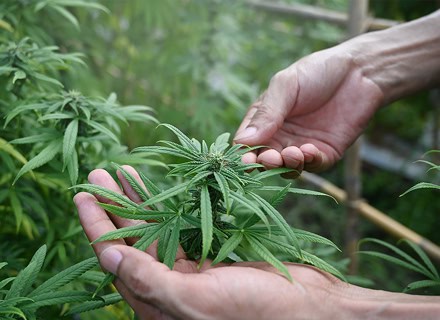Cannabis Processing and Oil Extraction Training
The cannabis industry has experienced rapid expansion over recent years, largely due to the legalization of both medicinal and recreational cannabis in various areas. A key factor contributing to the industry's success is the production of high-quality cannabis products, which depends significantly on sophisticated extraction and processing techniques. As the cannabis industry expands, there is a growing demand for experts skilled in extraction techniques and the operation of processing equipment. The cannabis industry's expansion necessitates a focus on essential extraction methods, the appropriate equipment, and the pivotal role of training programs in ensuring product quality and safety.
Why Formal Training Matters
Cannabis processing and oil extraction training is essential due to the intricate and precise nature of these processes. Skilled professionals ensure product quality and safety, directly impacting consumer health and regulatory compliance. Properly trained individuals can efficiently operate cannabis processing equipment and apply the best cannabis extraction techniques, resulting in superior cannabis extractions.
The cannabis industry follows strict standards to ensure product safety and consistency. Training programs should cover best practices for safety, efficiency, and quality control. Familiarity with these standards and their application in everyday operations is crucial for professionals in cannabis processing.
Types of Training Programs
- Online Training Programs: Online cannabis processing and oil extraction training programs provide flexibility and accessibility. Comprehensive courses may cover cannabis oil extraction, equipment operation, and safety protocols. These programs typically feature video tutorials, interactive modules, and virtual simulations, offering a thorough understanding of cannabis processing.
- In-Person Training Programs: In-person training provides hands-on experience, allowing students to interact directly with instructors and cannabis processing equipment. These programs are ideal for those seeking to develop practical skills in cannabis extraction and equipment handling who feel that a hands-on learning approach is best for them.
- Hybrid Training: Hybrid programs combine the benefits of online and in-person learning. Students can complete theoretical coursework online at their own pace and attend in-person sessions for hands-on training. These programs offer flexibility and practical experience.
Cannabis Processing and Oil Extraction Training
Cannabis processing and oil extraction training programs cover topics such as the science of cannabinoids and terpenes, various cannabis extraction techniques (such as CO2, ethanol, and hydrocarbon extraction), and equipment operation and maintenance. Safety protocols and regulatory compliance are also integral components of the curriculum.
These programs often cover advanced extraction techniques, quality control and testing, product formulation, and business management skills specific to the cannabis industry. These specialized skills prepare students for various roles in cannabis processing and enhance their career prospects.
Choosing the Right Training Program
When selecting a cannabis processing and oil extraction training program, consider the accreditation and reputation of the training provider. Ensure that the course content is comprehensive, and if possible, investigate the employment success of past graduates.
Another consideration is the program's cost, as it can vary widely. Online courses are generally more affordable than on-campus training. Programs can range from a few days to several months, depending on the depth of the curriculum.
Cannabis Processing Career Opportunities and Advancement
Graduates of cannabis processing and oil extraction training programs can pursue various roles, such as extraction technician, lab manager, quality control specialist, and product development manager. These positions require a strong understanding of cannabis extraction techniques and equipment.
According to mg Magazine, the job market for cannabis processing technicians is robust with growing demand for skilled workers. Salary expectations vary based on experience, location, and job role.
Career advancement in the cannabis industry is achievable with ongoing education and experience. Staying current with cannabis industry trends and advancements in cannabis processing equipment and techniques is crucial for career growth.
The development of high-quality cannabis products hinges on advanced extraction and processing techniques, as well as the expertise of trained professionals. Investing in training and certification helps to ensure compliance with industry standards and increases the safety and quality of cannabis products. As the cannabis industry continues to grow, so too does the need for skilled cannabis production professionals, making education and training in cannabis processing worthwhile for those wishing to pursue a career in this burgeoning field.




